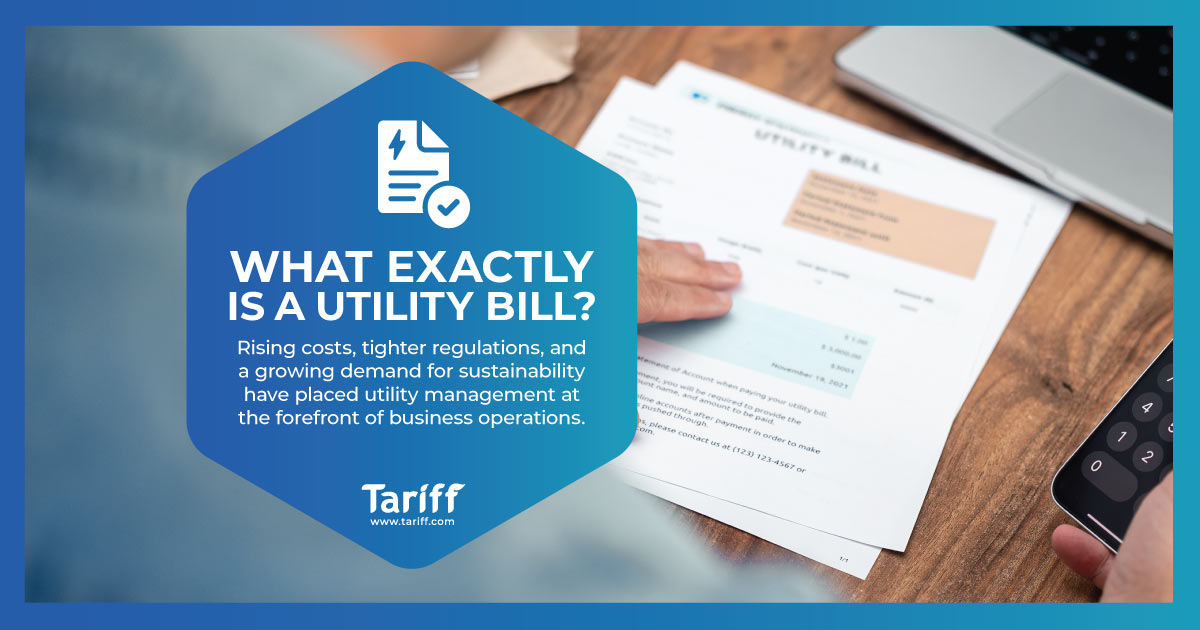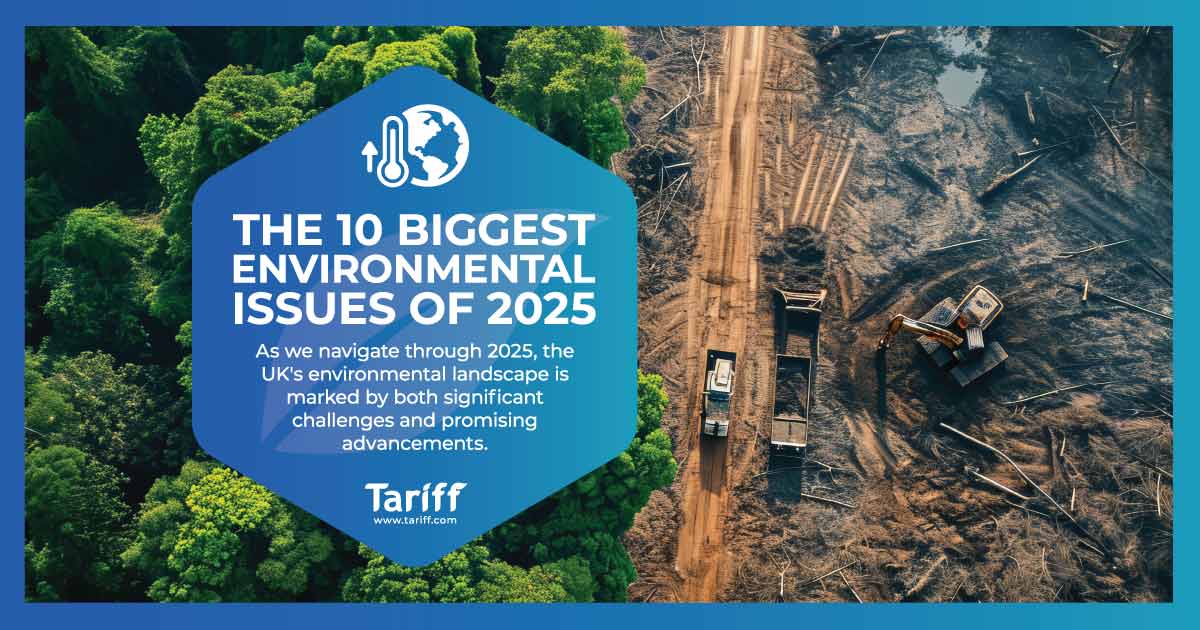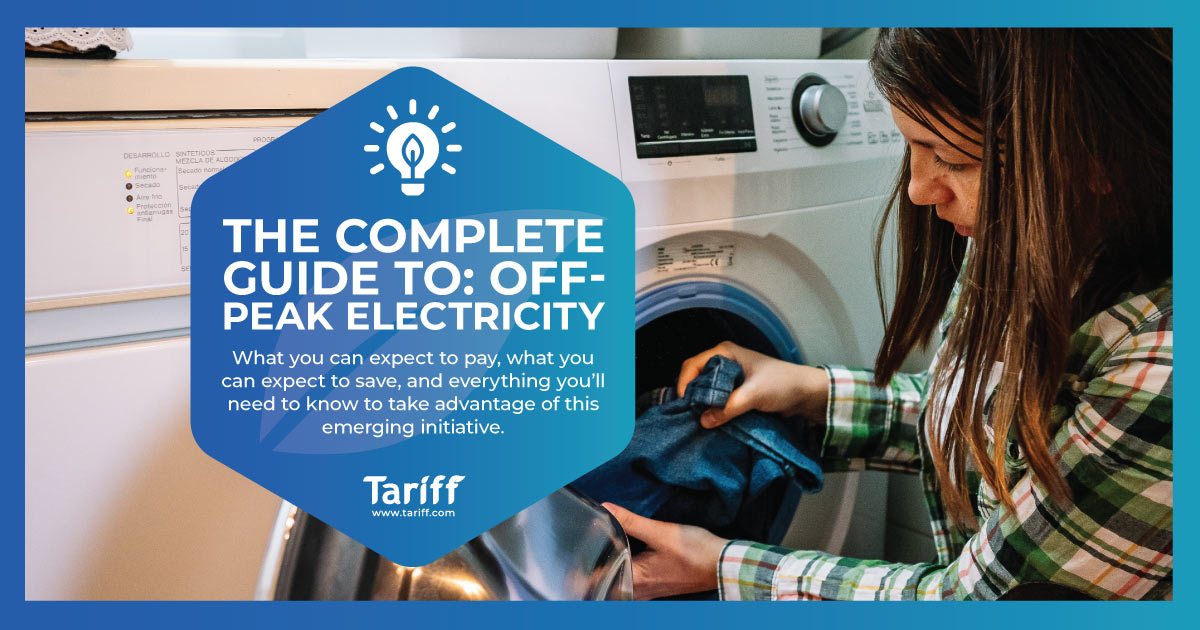How Businesses Can Harness Renewable Energy
If you’ve operated your own business or been in charge of the decisions for a larger company in recent years, the chances are you’ll have some familiarity with how perceptions of business energy are changing.
That’s entirely understandable, of course. With the planet on the verge of an uncontrollable climatological spiral, efforts have already begun in earnest to steer us away from that bleak future. However, the road forward can often be obscure or difficult, especially with so many purported solutions and new initiatives.
This is where Tariff can truly excel. As one of the UK’s frontrunners in business energy switching, we’re ideally placed to provide bespoke advice, guidance, and a comprehensive package to get your business started on its renewable energy journey.
With our latest article, we’ll address just that. We’ll discuss exactly how your business can take advantage of the recent boom in green energy technology, what that means for the future, and why now is the ideal time to get underway.
What Do We Mean By Renewable Energy?
Often a tricky concept to define, renewable energy simply refers to any form of energy that’s not limited, or that can continually be used without any significant or long-lasting environmental impact. This encompasses some of the more commonplace technologies, like:
- Wind power – such as turbines, farms and kinetic energy converters
- Solar power – most commonly seen as solar (photovoltaic) panels
- Hydropower – usually seen as high-tech dams that take advantage of flowing waters
- Geothermal – a relatively new technology, this uses the heat of the Earth’s core
While technologies for renewables have seen substantial and sustained investment over the last few decades, it’s undoubtedly an area that companies and governments will be seeking to supplement as we rapidly approach the global deadline of 2050 for net-zero.
Why Is Renewable Energy Important?
The obvious benefit of renewable energy is its global environmental impact, reducing reliance on non-renewable sources in limited supply, and minimising the detrimental impacts on wildlife. Switching to renewable energy reduces air pollution and doesn’t contribute to the ‘greenhouse effect’, otherwise referred to as climate change.
Fossil fuels, on the other hand, release carbon dioxide, which gets trapped in the atmosphere and causes temperatures to rise. There are many consequences to this, such as:
- Ocean Acidification
- Extreme Weather Conditions
- Water Pollution
- Rising Sea Levels
All these consequences result in the destruction of habitats for both wildlife and nature, resulting in a range of health issues and injuries. In many instances, the consequences of climate change are fatal. In 2022 alone, more than 3,000 people in the UK died due to heatwaves caused by the rising global temperature.
This is particularly concerning as the global temperature continues to rise, and explains why international bodies and the UK government are pressing their net-zero policies. Preventing the planet from heating up is the reason behind Rishi Sunak’s net-zero initiative, with the ultimate goal being to cut carbon emissions to zero by 2050.
To encourage the switch to renewable energy, the government is offering cash grants to upgrade from fossil fuel boilers, in addition to a proposed ban of petrol and diesel cars by 2035. This news comes in addition to other incentives for businesses to switch to renewable energy sources such as the government granting £45.7 million for businesses to cut emissions.
Importance of Renewable Energy For Businesses
There are significant advantages for using renewable energy in businesses also, namely in lowering costs. As government policy steers towards a renewable future with its various green initiatives, staying ahead of the curve can prevent costly restructuring and redirection down the line.
Using one of the renewable energies highlighted above can also lower energy bills and offers protection against the rising costs of the fossil fuel industry, with prices of oil in particular experiencing a continued increase since 2020.
What may appear a costly initial investment can create savings on bills in the long-term and is less susceptible to fluctuating market prices.
Data from the Bank of Scotland reveals that going green is important in other areas too. Increasingly, employees are concerned with the environmental policies of their employers. 60% of UK job-hunters research these before accepting their role and 18% of workers will not work for a company they feel is harmful to the environment.
It’s not just internally that renewable energy benefits business, with going green attracting both more customers and more investors. Almost 75% of customers would purchase products made using renewable energy, compared to those that don’t, highlighting the commercial benefit of adopting a renewable energy strategy.
Adopting a renewable energy strategy is now a key element of marketing that is of growing importance to businesses who wish to attract and retain consumers.
Furthermore, data from 2022 reveals that 81% of UK investors asked said they are concerned about the energy crisis. 65% believe that both policymakers and investors should provide further support from solar energy expansion in the UK. Renewable energy is increasing in importance for UK investors, who are keen to see a reduction in the reliance on gas for electricity generation.
5 Key Strategies For Renewable Business Energy
1. Making Use Of An Energy Switching Service
Making use of an energy switching service can make your business more efficient in terms of both energy consumption and costs. A switching service performs all the analytics on behalf of your business, finding your next energy provider for you. A switching service like Tariff makes the process of energy switching much simpler and helps secure a better deal for your business.
Tariff’s knowledgeable team can help you embark on a greener energy journey, placing you ahead of the curve on the 2050 net-zero emissions deadline.
Our team helps you see where you can save energy, reduce your energy usage, and make a smooth switch to a greener provider. Tariff knows that energy strategies are not a one-size-fits-all procedure, and looks in depth at how energy works for your business and your goals for a renewable future.
2. Conducting An Carbon Energy Audit For Your Business
Calculating carbon footprint is the first step in knowing where and how you are using your energy. Knowing this information enables businesses to adopt renewable strategies which will ultimately save money, cut emissions and be better for the environment. Providing your energy data is the first step in rolling out renewable energy alternatives in your business and reducing emissions to net zero.
Tariff’s audit service calculates your current impact on the environment, setting realistic targets and helping to monitor progress. Calculating emissions can be complicated, but Tariff’s professionals carry out a rigorous assessment and present the findings, simplifying the process and aiding in the reduction of emissions to meet that looming net-zero target.
Once you know what energy your business uses, its easier to reduce and replace energy with renewable services.
3. Purchasing Solar Panels
Purchasing on-site energy generators such as solar panels are a great way to increase self-generation of energy. Renowned for usage on commercial and domestic buildings, solar energy is a popular renewable choice in the UK.
The energy created can be used on-site, and any surplus can be sold back to the grid to generate more income. Less reliance on the National Grid has other benefits too, being less susceptible to outages and cuts.
Some of the benefits of solar panels with Tariff are:
- A Reduction in Electricity Costs
- Fully Personalised PV (Photovoltaic) Systems
- Market-Leading Products From Trusted Suppliers
- Significant Reduction in Carbon Footprint
- Reduced dependence on the National Grid
- Enhanced Corporate and Social Responsibility
Although the UK is renowned for its cloudy weather, solar panels do not require direct sunlight to generate power, meaning their ability to generate power is unaffected. Whilst businesses currently pay between 11 and 15 pence per kWh from their energy suppliers, the same amount of commercial solar energy can be produced for just 5 pence.
Tariff offers professional guidance on solar panel installation and offers a free solar review of your business, in addition to an evaluation of your energy usage to best cater to your business needs. Aware of the set-up costs involved in solar panel installation, Tariff explores all available funding options to ensure the best deal is secured for your business.
4. Investing In Electrical Vehicle Charging (EVC)
With a proposed ban on the sale of new petrol and diesel cars from 2035, electrical vehicles are set to become popular with their zero exhaust emissions.
Although electric vehicles can only be as environmentally friendly as their power charging source, the potential reduction in emissions outweighs the potential electric demand on the National Grid. Furthermore, with solar power predicted to become the largest producer of worldwide electricity generation by 2050, the concept of 100% green electric vehicles remains a viable goal.
With lower running costs, no congestion charges and government funding, converting petrol or diesel fuelled business cars to electrical vehicles is smarter for your business and the climate.
At Tariff, we take care of everything from initial assessments to organising the installation process. In addition to this, 5, Tariff offers a range of EVC products and charging solutions to suit your specific business needs. This includes a huge range of different chargers, all designed to adapt to a range of needs and environments.
Tariff can also provide support from the Government Workplace Charging Scheme, offering £500 per socket to install election vehicle charging points. Research suggests that electric cars are almost £600 cheaper a year than petrol cars, cutting business costs.
With financial support coming from the Government Workplace Charging Scheme, Tariff can help with the transition to EV’s and the installation of charging points. Your business will also receive maintenance and warranty support.
5. Considering Alternative Heating Solutions
Old boilers are likely to waste a lot of gas, proving costly to businesses and the environment. Research indicates that gas prices have quadrupled in the past year alone, so having an efficient heating system is ever important to optimize energy efficiency.
Tariff can aid in providing advice and offering advanced heating solutions, including:
- Air Source Heat Pumps
- Ground Source Heat Pumps
- Biomass Boilers
- CHP Systems
Heat pumps are up to 300% more efficient than gas boilers, and an effective way to reduce your carbon footprint. Biomass boilers are a carbon neutral alternative to traditional gas boilers. These boilers run on biomass fuel, which doesn’t contribute to carbon dioxide as it is absorbed during the growth of the fuel (e.g. the growth of a tree).
Another option is CHP systems – a combined heat and power system. Replacing your old gas boiler with a CHP can reduce carbon emissions by up to 30%, making use of heat which would otherwise be wasted when generating electrical power.
Tariff’s heating system audit can detect inefficiencies and make recommendations to improve your business’ energy consumption and offer renewable solutions. We’re able to optimise your business heating with energy efficient boilers, distribution systems and zone heating options available.
With Tariff, we’re able to fully audit your current heating systems, helping you make savings and reduce gas waste. Our renewable options across CHP systems, Biomass boilers and Heat Pumps could entitle your business to government schemes and get you on track for net-zero.
Take The Leap To Renewables With Tariff
With Tariff, reaching net-zero can be reached quickly and at ease, creating a greener business and climate. We pride ourselves not only on being a net-zero consultancy service, but in helping businesses select the right energy supplier for their needs.
With our trusted suppliers, we can help save you money and energy across a range of utilities. Switching to renewable energy and beginning your renewable energy strategy is smooth and simple with our effective 5-step strategy.
Tariff helps your business do its bit to reach the 2050 target. For a greener business and climate, contact the team at Tariff today to request a quote!




